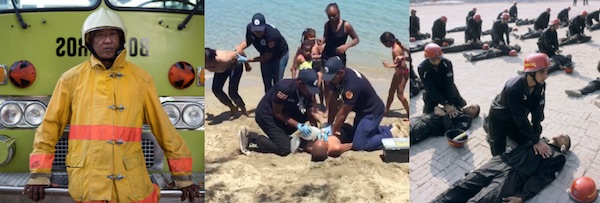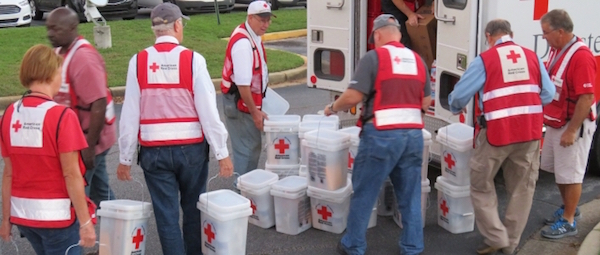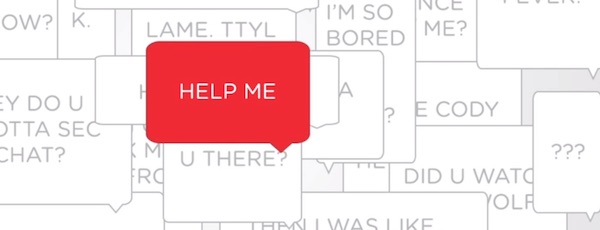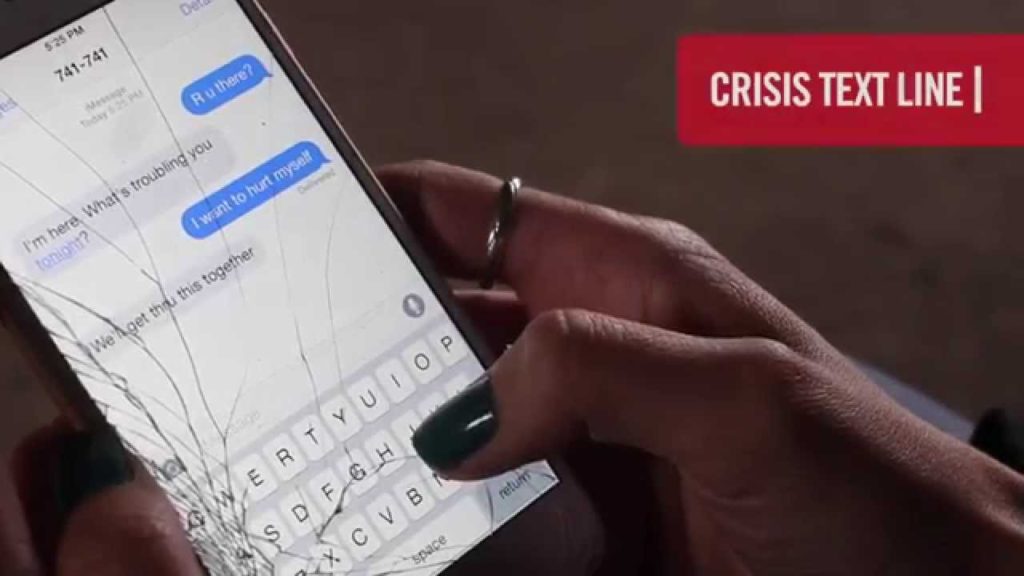Sharing economy apps help make idle assets like cars and homes available to those who need them. Long before such apps existed, nonprofits put idle resources of all kinds to work helping others in what one could call the original sharing economy.
Now Twilio is helping nonprofits up their sharing game. Twilio's cloud communication platform enables software developers to easily add text messaging (SMS), voice, and video communication to web and mobile apps. Through their social good initiative Twilio.org, they help nonprofit organizations bring together those in need with those who can help using the latest communication technology.
This is part of Twilio's pledge to give away a billion messages for good. Through their work with nonprofits, Twilio has learned that text messaging is often the fastest, most effective way to coordinate help, and sometimes it's the psychologically safest way for those in need to reach out. Here are five nonprofits using Twilio's text messaging to mobilize idle assets for good.
1. Trek Medics

Trek Medics is an emergency medical system that trains volunteer first responders, offers a low-cost emergency dispatch system, and much more. It's used in countries where 911 doesn’t exist. Trek Medics combines Twilio SMS with its emergency dispatching software, Beacon, to connect volunteers to accident sites by enabling people to alert local paramedics of emergencies via text. Trek Medics is able to get first-responders to accident victims within 10 minutes.
The organization has used Twilio since its inception. It’s now used in the Dominican Republic and Tanzania. It has allowed Trek Medics to create live testing environments in the U.S. and to test and demo the software in at least 10 other countries.
Founder and executive director Jason Friesen relays a recent success from the Dominican Republic when a mother and her two year-old baby were at a beach. The mother turned her back on the child for a second and when she turned around again, her baby was drowning.
“When they dragged the baby out of the water, the five year-old son of one of our volunteers saw what was going on and knew what to do,” says Friesen. “He found an adult and told them to call the fire department. The dispatcher at the fire department received the call, took the information and sent out a text message through Twilio to all our responders through our Beacon software.”
Three of the volunteer responders that Trek Medic had trained happened to be a couple hundred yards down the beach.
“When they got the SMS alert and saw the location,” says Friesen, “they ran to the spot, found the baby, gave it compressions, got it breathing again, and rushed it to the hospital. A few days later, the baby was back home and ‘totalmente bien’—completely well.”
2. mRelief

mRelief, a nonprofit that connects Americans to social services, used Twilio to create a SMS app that qualifies low-income individuals in 42 states for social services, including food stamps and housing assistance. One of the biggest challenges for people in need is that accessing services can be time consuming and cumbersome. mRelief enables people to qualify for services via a few simple text messages rather than filling out long applications and waiting a month before receiving a yes or no. The organization also launched a program to match hungry children with free meals during the summer when they’re not receiving meals at school.
Rose Afriyie, co-founder of mRelief, explains that the SMS platform is outperforming the website when it comes to reaching people.
“As we have grown both our web and SMS platforms, we have found SMS to be a really effective platform for engaging our target users,” she says. “Our SMS conversion rate is twice as high as our web conversion rate. Also, users who engage with our SMS platform are more likely to follow up, screen for additional services and refer the service to others.”
She adds that the organization strives to make government services more accessible using channels that their target users are most familiar with.
“One of our values as an organization,” she adds, “is building accessible technology. Being a part of the Twilio cohort really enables us to live out this value.”

Across Chicago and Northern Illinois, the American Red Cross responds to three or four disasters—mostly house fires—a day, which comes out to over 1,200 a year. The organization uses Twilio to streamline its emergency dispatch process and automate volunteer coordination. With the help of a volunteer engineer and programmer, the regional Red Cross built a Twilio-enabled system that dispatches volunteers who ensure that anyone who is displaced has immediate access to shelter, food, clothing, medication replacement and emotional support. This system is 50% faster than before. Twilio’s SMS service also serves as the principal means of communication between dispatch and assigned responders during the incident response.
Jim McGowan, Director of Planning and Situational Awareness for the region, explains that volunteers are mobilized faster now because dispatchers don’t need to make calls one-by-one, and that communications with responders have become much simpler as well. For instance, when a responder arrives on a scene, they text “ARRIVED” and it’s automatically recorded in the organization’s app, DCSOps. This eliminates back-and-forth phone calls and playing phone-tag with dispatchers.
“SMS has allowed us to engage our volunteers by leveraging the tools that they have, that they know,” McGowan says. “We're meeting them where they are which makes their experience much more satisfying.”
He explains that the organization doesn’t use Twilio to connect with clients, but that by using Twilio to connect with volunteers, the needs of the clients are met faster and more effectively.
“We've made communications so quick and easy for our volunteers that they can focus nearly 100% of their attention on our clients when on scene,” he says. “It permits them to do the meaningful work, the work that inspired them to join the Red Cross in the first place, without distractions.”

Crisis Text Line is the nation’s first free, 24/7 text line for people in crisis. The platform has exchanged 20 million messages with people in crisis since its start in 2013. It uses data from these conversations to help journalists, researchers, and citizens understand the crises Americans face to help prevent future crises from happening.
Crisis Text Line uses Twilio for all aspects of communication: the platform’s 741741 text number; the 800 support number; testing their services; and powering their office phone system. CTO Chris Johnson calls Twilio an enterprise-quality platform without the headache and price of enterprise software.
“We know that we can continue to grow quickly and Twilio will scale right there with us, all without lifting a finger,” he says. He explains that it’s not just the company, but the support and network of 1,000,000-plus developers and the extended community.
“Twilio has been instrumental in connecting us with the right resources,” he says, “inside and outside of Twilio, when we need it.”

VolunteerMatch connects volunteers looking to do good with worthy causes. The organization has matched over 11 million volunteers. In 2015, it teamed up with Twilio to create an app that allows volunteers to text their zip code and optional keywords to VolunteerMatch and immediately receive a list of available opportunities.
As VolunteerMatch president Greg Baldwin explains, Twilio helps extend the ways people find volunteer opportunities—especially those with limited access to computers. He shares the story of one volunteer who reached out to VolunteerMatch to express her challenge in reading a computer monitor.
“After texting to find an opportunity, the volunteer was delighted by the ease in which she was able to connect to a project,” says Baldwin. “This volunteer was not alone. With interested volunteers participating in all 50 states, VolunteerMatch increased our impact by connecting more volunteers to more opportunities.”
Baldwin stresses that, as mobile device use increases, having creative ways to connect people to volunteer opportunities via text is important.
“Texting,” he says, “brings a different level of simplicity to the search for volunteer opportunities.”
He adds that the Twilio team is helping nonprofits across the country mobilize volunteers with the benefits flowing to the communities they serve. And notes that the VolunteerMatch integration technology (API) is available to the Twilio developer community to repurpose for other projects. To find volunteer opportunities near you, text your zip code to VolunteerMatch's hotline (314) 282-8630.
##
This story is part of a series on the sharing economy sponsored by Twilio.









